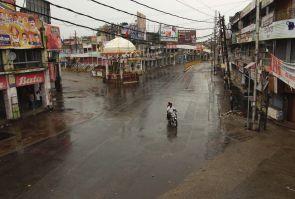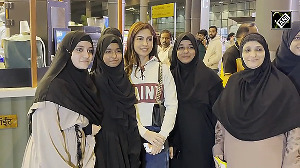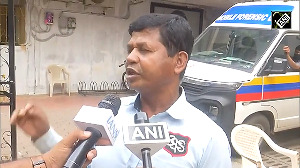 Voicing concern over the Muzaffarnagar violence, Rashtriya Lok Dal leader and Union Minister Ajit Singh on Tuesday said it may spread to other states and become unmanageable" if not controlled by "strict action".
Voicing concern over the Muzaffarnagar violence, Rashtriya Lok Dal leader and Union Minister Ajit Singh on Tuesday said it may spread to other states and become unmanageable" if not controlled by "strict action".
"Now the main concern is to check spread of violence to other places, as if it's not controlled now then it may spread to other states... If it spreads to other states, then situation would become unmanageable. So, some strict action should be taken now," he said.
Accusing the Samajwadi Party and the Bharatiya Janata Party of flaring up communal tensions for polarising voters, Singh said the Akhilesh Yadav government "did not take any timely action to prevent violence".
"Since the day this government has come, there have been 100 incidents and in 27, either people lost their lives or got grievously injured," the Union aviation minister told media persons.
Accusing the UP government of fuelling communal tensions, the RLD chief said even in 1992 (when Babri mosque was demolished), there were no tension in Faizabad but now the town has witnessed fight between two communities.
Suspecting a collusion between the BJP and the SP, he said everybody knows that Ayodhya and RamTemple is not an issue either for Hindus or Muslims any more as they are waiting for the court's verdict.
He wondered why the UP government deployed 8,000 policemen to stop Vishwa Hindu Parishad's '84 kosi yatra' but did "nothing to contain the brewing tension" in Muzaffarnagar though they had prior information.
"Besides, he said the government also tried to make the suspension of Indian Administrative Service officer (Durga Sakthi Nagpal) a communal issue while it was a case of action against sand mafia," he said, adding that "they (SP) know that they can't win polls on development issue...so they want to contest elections on communal lines".
The minister said tension started with harassment of a village girl and was fuelled by an online video and inflammatory messages by political leaders.
"The people were agitated and they had no belief that the police would take action. The political leaders started to take advantage of the situation by issuing inflammatory speeches. And those speeches were like non-bailable offence but the police allowed them to continue," he said.
However, "when we tried to go there to restore peace and harmony, they didn't allow us," he said.


.jpg)
.jpg)






